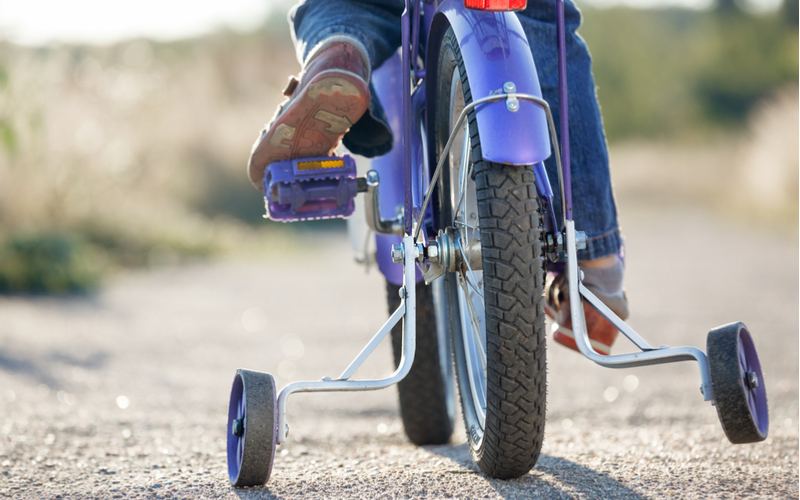I know of a lot of people who expend a great deal of time and creative energy trying to bring this happy state of affairs a few steps closer.
But as the parent of a child with Down’s Syndrome, I do sometimes wonder how we can expect the world to be more tolerant of our children’s diversity, when we in the Down’s syndrome ‘community’ seem to have as much trouble as the general population in accepting that not all our children are, or should be, exactly alike.
To give you an example: I once posted a video of Freddie riding a bike, which was something that both doctors and physiotherapists had suggested he would struggle to learn to do.
However, we decided to try, and after a quick demonstration from his big sister, Freddie hopped aboard his new bike and pedalled off down the street with us following after.
I was so delighted I filmed a bit of his ride and posted it on my blog.
Some of the comments I received ripped me to shreds for misrepresenting the capabilities of people with Down’s Syndrome.
This was not from a person who had no real-life experience; it was from the parent of a young adult with Down’s who, this person said, never had been, and never would be, capable of riding a bike.
OK – fair enough, I wouldn’t for one second question that this person was telling the truth when she stated that her child could not ride a bike.
But I fail to see how this fact meant that my video was misrepresenting people with Down’s Syndrome.
My son irrefutably has Down’s Syndrome – there’s no grey areas with that.
It’s not down to an individual clinician’s interpretation of what DS is, either you have it or you don’t: the presence of the extra chromosome must be demonstrated before an official diagnosis is made.
My son was irrefutably riding a bike, a thing with two wheels (plus stabilizers), handlebars and pedals.
As could clearly be seen in the video clip, no one was holding on or pushing, he was propelling himself forwards using the pedals.
So in what way, exactly, was that video misrepresentative?
A similar thing happens if ever publish a blog post that suggests that, as a family, we are generally happy and enjoy good quality of life, or that my son generally enjoys good health.
I find myself accused, in not so many words, of being a liar.
‘Oh, you’re all rainbows and unicorns. I prefer to tell it like it is.’ This is a fairly typical comment.
What is it that makes these people, who have never met me or my child, who have never been to my house, who know nothing about me or my family, assume that I am NOT telling it like it is for me?
When I read someone else’s blog or Facebook post detailing the struggles and negative experiences that they have, their child’s battles with poor health, or with school, or behaviour, and so on, it never crosses my mind to doubt that they are telling it like it is for them.
I would never dream of negating their experience by calling it misrepresentative. I would not try to silence them because their reality is different from mine.
I accept it as fact that some families have a very much harder time than mine do.
Some families do find their experiences reflected in the negative stereotype that the medical profession and the media have laid out for us.
That is the truth – but it is not the whole story of life with Down’s Syndrome.
We accept that in the general population people come with different abilities and aptitudes, differing levels of health and fitness. The same is true of people with Down’s syndrome.
No two sets of parents are exactly alike – they come from different backgrounds, have different attitudes, aptitudes, abilities, and tolerances.
That is why every family dynamic is unique, both within the general population and within the Down’s Syndrome community.
That’s why families like mine, who find that their lives, and their experiences, are very much more positive than they had been led to believe, really do exist.
We are not walking around with ice-cream cornets stuck on our foreheads pretending to be unicorns.
I did not claim that my child could fly, or was riding Pegasus. I said he was riding a bike, and he was riding a bike; I even posted a picture of him riding a sodding bike to prove it.
Our somewhat ‘easier’ experience is equally true, and equally valid, and we have an equal right to talk about it.
No one person, or family, represents the entirety of what it means to live with Down’s Syndrome.
Each one of us makes up a small piece of the picture – but the picture will never be whole unless we are allowed to show all the different pieces.
